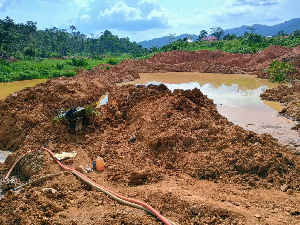Nneka Youth Foundation, a Non-Governmental Organisation (NGO) has trained 20 teen mothers in the Mafi Sasekpe community of the Central Tongu District of the Volta Region in alternative ways of processing cassava.
The training formed part of the Foundation’s Vocational and Entrepreneurial Pathway programme aimed at giving young women the necessary skills to become self-dependent.
The young women were taught how to process the root tuber into flour, which could be used to produce a wide variety of cassava-based recipes including chips, doughnuts, and other pastries.
Madam Cecilia Fiaka, Founder of the NGO, said cassava flour was organic, purer, contained less starch, has a longer shelf life, and could supplement gari and the regular cassava dough.
She said preparing cassava flour saved time and eliminated the use of strong heat which affected the health of women involved in the making of gari.
Madam Fiaka told the Ghana News Agency that the community was selected for the programme after her outfit discovered the cassava processing industry which boomed there.
The Founder said the training would add value to the lives of young women by empowering them to seek out alternative livelihoods that would help end the destitution that came with dropping out of school.
She said when their livelihoods had been improved, teen mothers who often end up in forced marriages and violence could be saved from domestic abuse and poverty.
The entrepreneurial pathway programme also provides out-of-school girls and teen mothers with psychosocial support to mitigate the negative effects of their life experiences.
Mama Klebetesi III, Queenmother of Mafi Sasekpe, commended Nneka Youth Foundation for the support and urged the beneficiaries to take it up and create for themselves sustainable livelihoods.
She said the heat and the smoke produced by traditional gari baking stoves weakened women and was glad Nneka has introduced more alternatives to the cassava derivative.
The Queenmother said gari remains the major source of income for the farming community, noting that over 150 processors produced about 100 to 200 bags per week.
Mama Klebetesi said bad roads and the lack of viable markets were affecting the growth of the industry in the community.

“Bad roads and the lack of a bigger market is making people cheat us”, she lamented and called on stakeholders to fix roads in the community.
She also appealed for support for improved baking stoves.
Mama Klebetesi mentioned that the community has initiated the construction of a warehouse to store cassava and other farm produce, but said the project had stalled due to lack of finance and again appealed for support.
Nneka Youth Foundation, with the support of UK-based The Ashmore Foundation, presented a cassava grating and pressing machine to the community to reduce processing time.
The Foundation, earlier in the year, trained 75 young women from the community in bead making, and manufacturing of detergents, and batik fabrics.
A total of 28 of the number who excelled at the training were empowered to become entrepreneurs.
The Foundation runs a summer camp in the Afadzato South District for children and has since 2012 hosted over 11000 children from four regions, providing them with skills training and educational support programmes.
Madam Fiaka said the Foundation sought to give opportunities to young women and children and was supporting brilliant teen mothers to reintegrate into school, whiles availing skills and vocational training for others.
Business News of Saturday, 5 October 2019
Source: ghananewsagency.org













